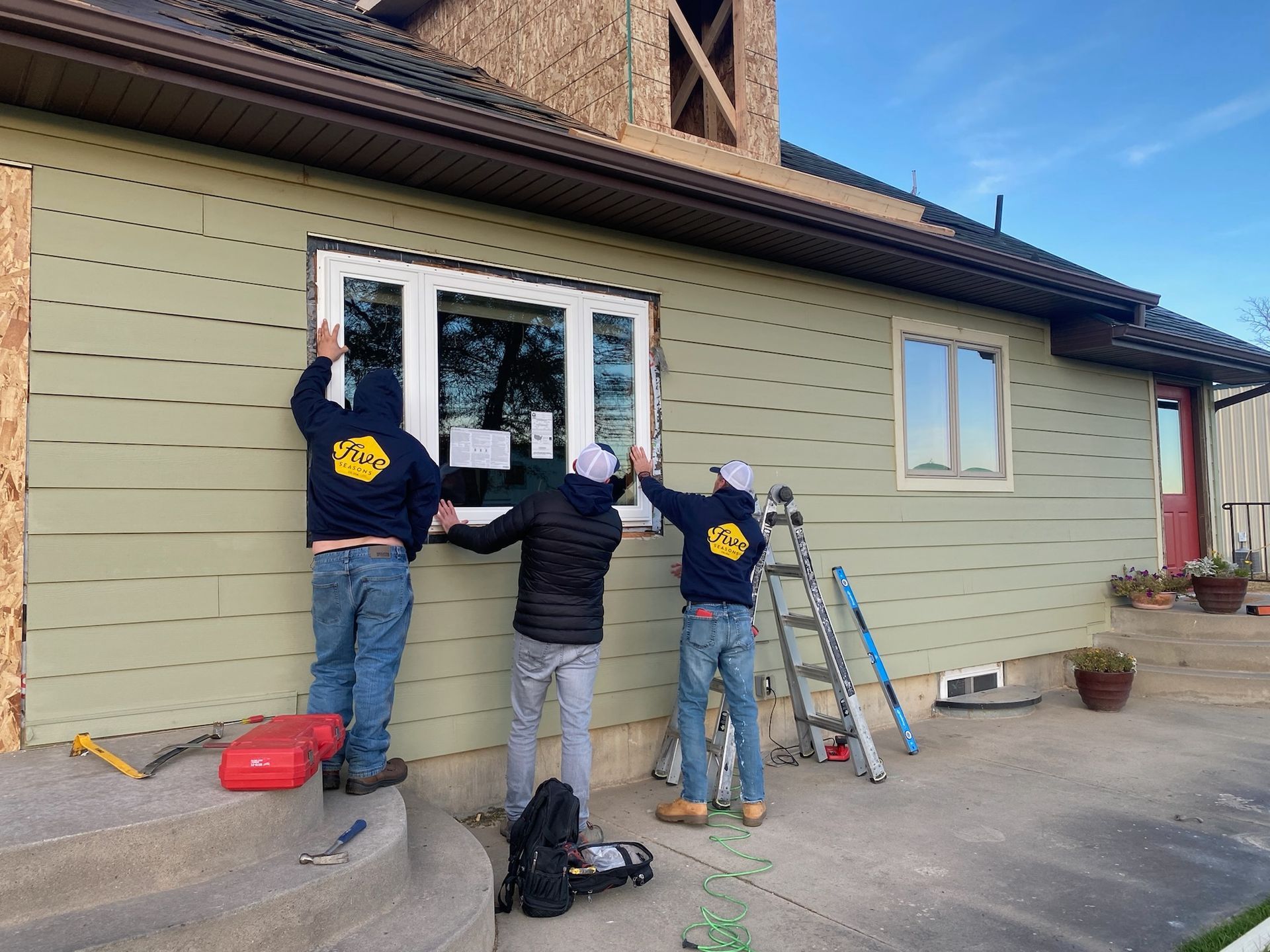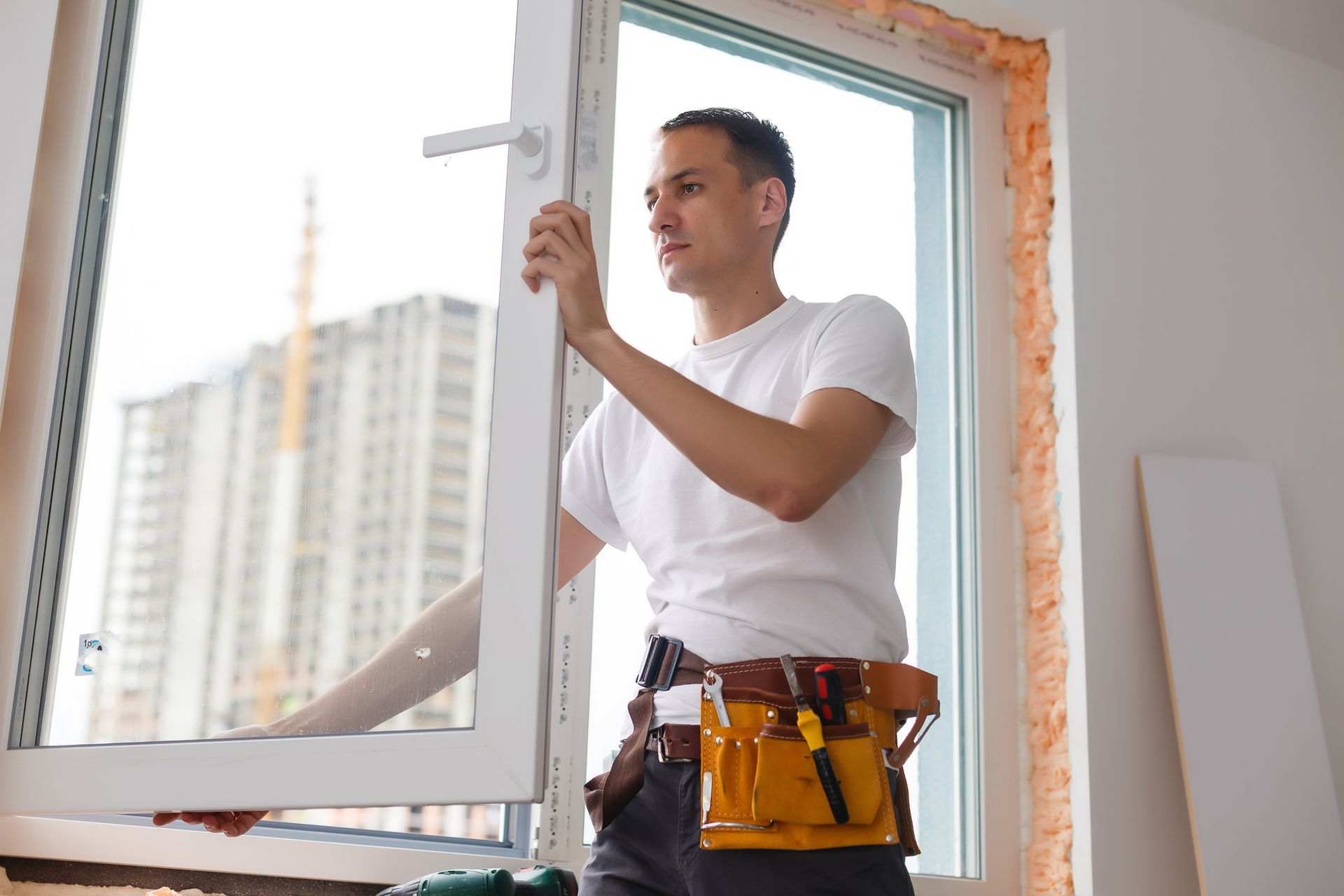Custom window installation involves designing windows to fit unique architectural requirements, typically taking 6-12 weeks for manufacturing and requiring specialized installation techniques for non-standard shapes, sizes, or performance specifications that exceed standard window offerings.
According to the Custom Window Institute, custom windows require 40-60% more installation time than standard units due to precise fitting requirements and specialized techniques, with proper installation being critical for warranty coverage and long-term performance of these premium investments.
Custom windows transform homes by accommodating unique architectural visions, fitting challenging openings, and providing performance specifications beyond standard products. From dramatic curved designs to oversized picture windows, custom installations require careful planning, expert design collaboration, and skilled installation techniques to ensure optimal results that enhance both aesthetics and functionality for decades.
Understanding Custom Window Options
Design Flexibility and Architectural Integration
Custom windows offer unlimited design possibilities including unique shapes, oversized dimensions, and specialty configurations that standard products cannot accommodate. Architects and designers frequently specify custom windows to achieve specific aesthetic goals or accommodate unusual structural requirements.
Common custom applications include arched windows, triangular designs, floor-to-ceiling installations, and complex multi-panel configurations that create dramatic architectural statements. Custom windows also allow for specific performance requirements such as hurricane ratings, security features, or specialized glazing systems for unique environmental conditions.
Material and Performance Customization
Custom window manufacturing allows for material combinations and performance specifications tailored to specific project requirements. Options include exotic wood species, specialized metal finishes, custom colors, and advanced glazing systems not available in standard product lines.
Performance customization encompasses thermal ratings, sound reduction specifications, impact resistance, and security features designed for specific environmental or security requirements. These specialized features often justify the premium investment through enhanced comfort, safety, and energy efficiency benefits.
Design and Planning Process
Initial Consultation and Design Development
The custom window process begins with detailed consultation to understand architectural goals, performance requirements, and budget parameters. Professional designers work with homeowners and architects to develop concepts that balance aesthetic vision with practical considerations.
Design development includes creating detailed drawings, specifying materials and finishes, and establishing performance criteria for energy efficiency, weather resistance, and operational requirements. This phase typically requires 2-4 weeks and establishes the foundation for successful custom window projects.
Engineering and Structural Considerations
Custom windows often require structural engineering analysis to ensure proper support for oversized units or unusual configurations. Load calculations, header requirements, and foundation considerations become critical for large or heavy custom installations.
Engineering review also addresses thermal performance, water management, and code compliance for custom designs. Professional engineers ensure custom windows meet or exceed building code requirements while providing optimal performance in their specific installation environment.
Manufacturing Timeline and Quality Control
Production Scheduling and Lead Times
Custom window manufacturing typically requires 6-12 weeks from final design approval, with complex designs or specialty materials potentially extending timelines to 16-20 weeks. Production scheduling depends on manufacturer capacity, material availability, and design complexity.
Quality control during manufacturing includes multiple inspection points to verify dimensional accuracy, material specifications, and performance testing. Custom windows undergo more rigorous testing than standard products due to their unique specifications and higher investment levels.
Pre-Installation Verification
Before delivery, custom windows undergo final quality inspection and dimensional verification to ensure they meet specification requirements. Any discrepancies discovered at this stage can be corrected before installation, preventing costly field modifications or delays.
Professional contractors often participate in pre-installation reviews to verify compatibility with installation conditions and identify any site preparation requirements. This collaboration ensures smooth installation and optimal performance of custom window investments.
Installation Challenges and Techniques
Specialized Installation Requirements
Custom window installation requires specialized techniques and equipment not needed for standard installations. Oversized units may require crane assistance, multiple installers, and temporary structural support during installation processes.
Precise fitting becomes critical with custom windows, as field modifications are often impossible due to unique shapes or sizes. Installation teams must work with exceptional accuracy to ensure proper fit, alignment, and weathersealing for optimal long-term performance.
Weather Protection and Scheduling
Custom window installations often require extended installation times due to complexity and precision requirements. Weather protection becomes critical for multi-day installations, requiring temporary enclosures and climate control to protect both the installation and interior spaces.
Installation scheduling must account for weather windows, crane availability, and specialized labor requirements. Professional project management ensures all resources coordinate effectively to complete custom installations safely and efficiently.
Cost Considerations and Value Analysis
Premium Pricing Structure
Custom windows typically cost 200-400% more than comparable standard windows due to specialized manufacturing, engineering requirements, and installation complexity. However, this investment often provides unique design solutions impossible to achieve with standard products.
Cost factors include design complexity, material specifications, size requirements, and performance features. Simple custom sizing may add modest premiums, while complex shapes or specialized materials can significantly increase project costs.
Long-Term Value and ROI
Custom windows often provide excellent return on investment through enhanced architectural appeal, improved functionality, and unique design elements that differentiate properties in the marketplace. High-end custom installations frequently become signature features that define property character.
Energy efficiency benefits of custom high-performance windows can provide ongoing utility savings that help offset premium costs over time. Superior materials and construction also typically result in longer service life compared to standard window products.
Quality Assurance and Warranty Considerations
Installation Standards and Certification
Custom window installation requires adherence to manufacturer specifications and industry best practices to maintain warranty coverage. Many custom window manufacturers require certified installers or specific installation procedures for warranty validation.
Quality assurance includes pre-installation verification, proper installation techniques, and post-installation testing to ensure optimal performance. Documentation of installation procedures often becomes part of warranty requirements for custom window projects.
Ongoing Maintenance and Support
Custom windows may require specialized maintenance procedures or replacement parts not readily available through standard distribution channels. Establishing maintenance relationships with manufacturers or specialized service providers ensures long-term support availability.
Professional maintenance schedules help preserve custom window investments and maintain warranty coverage. Regular inspection and preventive maintenance become particularly important for complex custom installations with specialized hardware or operating systems.
Before beginning any custom window project, accurate measurement of existing openings or planned installations is essential for proper design and manufacturing. For comprehensive guidance on measuring techniques that ensure perfect custom window fit, explore our detailed guide: 🔗How to Measure for Window Replacement: Complete Step-by-Step Guide & Common Mistakes

People Also Ask About Custom Window Installation
1. How long does custom window installation take from start to finish?
Complete custom window projects typically take 8-16 weeks from initial design consultation to final installation. The design and approval phase requires 2-4 weeks, manufacturing takes 6-12 weeks, and installation can range from 1-5 days depending on project complexity.
Complex designs, specialty materials, or unusual sizes can extend timelines significantly. Projects requiring structural modifications or engineering analysis may add several weeks to the overall schedule. Weather conditions and contractor availability also affect installation timing.
Planning ahead is essential for custom window projects, especially if coordinating with other construction activities. Many homeowners begin the custom window process 4-6 months before desired installation dates to ensure adequate time for design development and manufacturing.
2. What makes custom window installation more expensive than standard windows?
Custom windows cost significantly more due to specialized manufacturing processes, engineering requirements, and complex installation procedures. Unlike mass-produced standard windows, custom units require individual design, tooling setup, and quality control processes that increase manufacturing costs.
Installation complexity adds substantial labor costs, often requiring specialized equipment, multiple installers, and extended installation time. Custom windows may need crane assistance, temporary structural support, or specialized weatherproofing techniques not required for standard installations.
The premium also reflects superior materials, advanced performance features, and engineering analysis often included with custom specifications. While expensive initially, custom windows frequently provide unique solutions impossible to achieve with standard products.
3. Do custom windows require special permits or approvals?
Custom windows typically require the same building permits as standard window installations, but complex projects may need additional approvals for structural modifications or design review in historic districts or planned communities.
Oversized windows or unusual configurations may require structural engineering analysis and plan review by building departments. Some jurisdictions have specific requirements for energy efficiency, egress, or architectural compatibility that affect custom window approvals.
Historic districts often have design review processes for custom windows to ensure architectural compatibility. Working with experienced contractors familiar with local requirements helps navigate approval processes efficiently and avoid delays.
4. Can any contractor install custom windows, or do I need specialists?
Custom window installation requires specialized expertise and equipment not available with all contractors. Many custom window manufacturers maintain networks of certified installers trained in their specific products and installation requirements.
Look for contractors with demonstrated experience in custom window installation, proper licensing and insurance, and manufacturer certifications when available. Complex projects may require teams with crane operation experience, structural modification expertise, and advanced weatherproofing skills.
The investment in custom windows justifies selecting premium installation teams capable of handling specialized requirements. Poor installation can void warranties and compromise performance, making contractor selection critical for project success.
5. What should I expect during the custom window design process?
The design process begins with consultation to understand your vision, architectural requirements, and performance needs. Designers create concepts and technical drawings that balance aesthetic goals with structural and performance considerations.
Expect multiple design iterations as concepts are refined and engineering requirements are integrated. Material selection, hardware specification, and performance testing requirements are established during this phase. Design approval typically requires sign-off on detailed specifications and final drawings.
Communication throughout the design process ensures the final product meets expectations. Professional designers guide you through options and trade-offs while ensuring designs are manufacturable and will perform as intended in your specific application.
Our Take
At Five Seasons Windows & Doors, we've managed hundreds of custom window installations and understand that success depends on meticulous planning, expert design collaboration, and skilled installation execution. Custom windows represent significant investments that require experienced teams capable of handling complex requirements from concept through completion.
Our approach emphasizes thorough design development and engineering analysis before manufacturing begins. We've learned that time invested in planning prevents costly changes and ensures custom windows meet both aesthetic and performance expectations. Our relationships with premium custom manufacturers provide access to advanced materials and manufacturing capabilities.
We believe custom windows should enhance both architectural beauty and functional performance. Our installation teams receive specialized training for custom products and maintain the equipment necessary for complex installations. This expertise ensures custom window investments provide the exceptional results that justify their premium costs.
Final Takeaway
Custom window installation transforms architectural visions into reality through specialized design, manufacturing, and installation processes that exceed standard product capabilities. Success requires careful planning, expert collaboration, and skilled execution throughout the entire project lifecycle.
The investment in custom windows reflects not just premium materials and manufacturing, but also the specialized expertise required for design development, engineering analysis, and complex installation procedures. These projects demand experienced teams capable of managing every aspect from initial concept through final completion.
When planned and executed properly, custom windows provide unique architectural solutions that enhance both property value and daily living experience. Working with experienced professionals who understand custom window requirements ensures your investment delivers the exceptional results that make custom installations worthwhile for discriminating homeowners seeking distinctive architectural elements.
Get Started Today
Five Seasons Windows & Doors is Colorado’s top-rated local window company with 230+ 5-star reviews. We offer expert advice, no-pressure quotes, and flexible project options — including phased installs. Schedule your consult today.




